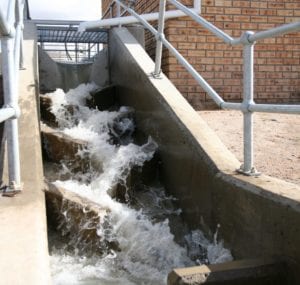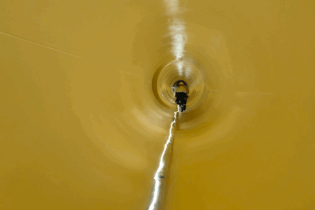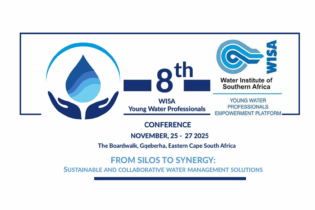By Richard Jansen van Vuuren
This year saw the fourth Blue Drop accreditation process come to successful fruition atthe Blue Drop Awards, held in conjunction with the WISA 2012 conference and Exhibition. Blue Drop accreditation and the annual Blue Drop report and awards have had a significant impact on the water sector during the last four years.The report is prompted by the desire to be transparent and ensure that credible information is communicated between municipalities, the Department of Water Affairs and the end user. This year, the Department of Water Affairs has clarified that:- Blue Drop certification goes beyond the quality of drinking water alone;it ventures into other spheres such as risk management, operations and asset management.
- If a small town does not have Blue Drop certification, this does not necessarily indicate that the water is unsafe to drink.
- The certification programme is a non-voluntary, incentive-based regulatory initiative.
| Category | 2009 | 2010 | 2011 | 2012 |
| Municipalities audited | 107 | 153 | 162 | 153 |
| Water systems audited | 402 | 787 | 914 | 931 |
| Number of Blue Drop awards | 25 | 38 | 66 | 98 |
| National Blue Drop score | 51.4% | 67.2% | 72.9% | 87.6% |
| Water services authority | Province | 2012 national log position | Blue Drop score 2012 | 2011 national log position | Blue Drop score 2011 |
| Ekurhuleni | Gauteng | 1 | 98.95% | 4 | 97.44% |
| City of Johannesburg | Gauteng | 2 | 98.92% | 1 | 97.69% |
| Mogale City | Gauteng | 3 | 98.79% | 8 | 96.19% |
| eThekwini | KwaZulu-Natal | 4 | 98.77% | 13 | 95.71% |
| Tlokwe | North West | 5 | 98.45% | 5 | 96.87% |
| City of Cape Town | Western Cape | 6 | 98.14% | 2 | 97.61% |
| Bitou | Western Cape | 7 | 97.74% | 9 | 96.12% |
| Witzenburg | Western Cape | 8 | 97.63% | 3 | 97.56% |
| Randfontein | Gauteng | 9 | 97.54% | 17 | 95.24% |
| George | Western Cape | 10 | 97.41% | 7 | 96.26% |
KwaZulu-Natal
eThekwini Metropolitan Municipality is the best performing municipality in KwaZulu-Natal with support from Umgeni Water as itswater service provider. Limpopo Lephalale Local Municipality is the best performing municipality in Limpopo with private sector support from Exxaro and Eskom as itswater service providers. Mpumalanga Steve tshwete Local Municipality is the best performing municipality in Mpumalanga with support from Eskom as itswater service provider. North West Tlokwe City Council is the best performing municipality in the North West. Northern Cape Hantam Local Municipality is the best performing municipality in the Northern Cape. Western Cape City of Cape Town Metropolitan Municipality is the best performing municipality in the Western Cape. Speaking at the release of the National Blue Drop Water Quality Assessment Report, the Minister of Water and Environmental Affairs, Edna Molewa, stated that water quality in the country is a key priority for the Department of Water Affairs. “We take our mandate as custodian of the nation’s water resources very seriously and we have, over the years, sought to perfect our strategies and planning initiatives to ensure only the best water is supplied to citizens,” she stated. Molewa highlighted that she is pleased that South Africa’s tap water remains among the best in the world, pointing out that South Africais one of only a handful of countries where people can drink water directly from the tap. “We are therefore committed to doing everything in our power to ensure this does not change but instead improves further.” The Blue Drop certification programme is the department’s own innovative means of regulation, designed and implemented with the objective of improving tap water quality management. This is a flagship innovation of the department and it has been embraced by the majority of our municipalities over the past four years. This is borne out by the marked improvement in the submission of performance portfolios by municipalities. “I must however stress that a town or city whose water is not given a Blue Drop certificate is not necessarily unsafe for human consumption. The certificate is awarded as an acknowledgement of excellent drinking water quality management thatsurpasses the requirements of national norms and standards by a significant margin. In fact there are a number of water systems in many towns where the water complies well with set standards, but there are certain shortcomings identified with the overall risk management aspect,” pointed out Molewa. The report of 2012 shows significant improvements, which serves as evidence of the positive impact this incentive-based regulation approach is having on the South African water sector. The first Blue Drop report of 2009 indicated that the national microbiological compliance for South African tap water was measured at 93.3% against the National Standard (SANS 241). Notably this has increased to 97.3% in the 2012 reporting cycle. The overall national drinking water compliance figure is recorded at 98.93% (based upon microbiological, chemical, physical and organoleptic data). Molewa has since drawn attention to what has become a key performance area in the Blue Drop assessment process: Water safety planning. This is a fundamental component of the Blue Drop certification programme; it was introduced by the World Health Organisation and first implemented in South Africa country in preparation for the 2010 FIFA World Cup. In 2011, it was reported that 154 systems have water safety plans in place, while during the 2012 audits it was confirmed that 579 water supply systems had water safety plans in place. The significance of water safety planning is that it is a safety-net to ensure people’s lives are not placed at risk when issues of contamination occur in the drinking water supply. An example of this is when contamination of water occurred at Diepsloot in Gauteng; because safety planning was in place, authorities were able to shut down the water supply until they were satisfied the water was again safe to drink. The Department of Water Affairs is measuring performance of municipalities on the key performance indicators of the Regulatory Performance Measurement System. This year, the department releasedthe Municipal Water Services Performance Assessment report together with the Blue Drop report to allow the public a view on the status of municipal water services and allow the authorities to compare their performance with other similar sized municipalities.






